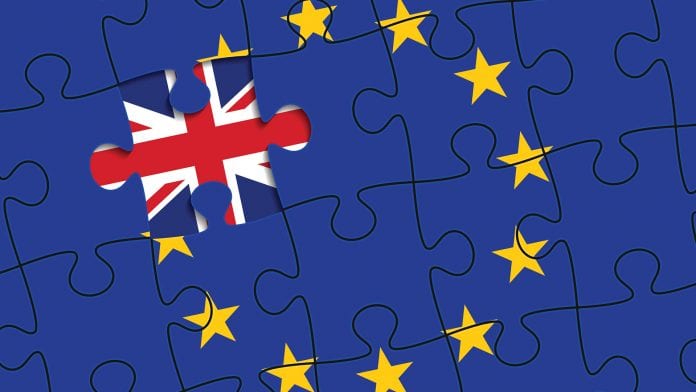
Experts have issued a warning that a no deal Brexit could have a hugely detrimental impact on patients in the UK living with a rare disease.
One in 17 people in the UK live with some form of rare disease. A group of experts have now warned that a no deal Brexit will result in the exclusion of the UK from the 24 European Reference Networks (ERNs) which work to improve the care of patients living with a rare disease, which requires highly specialised diagnosis and treatment.
The experts wrote to The Lancet highlighting their concerns, and the letter has a total of 73 signatories, including 20 signatories each representing a patient support group, and 53 signatories from senior clinicians and researchers who are currently members of a European Reference Network. These members will be removed from the networks as of 1 January if no agreement is reached.
Brexit and rare diseases
The UK has been at the forefront of the creation and development of the 24 ERNs, which the experts say has helped the UK “to reap the benefits of closer collaboration with experts and patient advocates throughout Europe”. The ERNs have made it easier to develop guidelines, create disease registries, build research collaborations, and create new education and training programmes, contributing to the improvement of patient care.
Dr Marc Tischkowitz from the University of Cambridge, who helped co-ordinate the letter, said: “Rare diseases are rare, and experts are rarer still. European Reference Networks were set up because no single country has the expertise or resources to cover all of the known rare diseases, which number in the thousands. They’ve played a pivotal role in harnessing the collective knowledge across the continent and in developing sustainable healthcare to treat those affected.
“Leaving the EU without an agreement on UK participation in the Networks means we potentially write off years of progress made by UK clinicians, researchers, and patient advocates, while also reducing access to clinical trials and funding. Most importantly, it will diminish our ability to provide the best care for the millions of children and adults with rare diseases and complex conditions in the future.”
Patient impact
The ERNs have offered support for patients living with rare diseases which otherwise would not have been available.
Allison Watson co-founded Ring20, a charity that supports people living with ring chromosome 20 Syndrome, and co-lead for the EpiCARE ERN for rare and complex epilepsies, said: “I have been hugely encouraged by the change that being part of an ERN can bring, for people like my son and many others living with ultra-rare diseases. I believe we would not have managed this working with just UK rare disease organisations.
“With thousands of rare diseases, many of them ultra-rare where only a handful of people living in the UK are affected, is it cost-effective or even possible that the UK can deliver effective services and research for these people alone? I believe only through collaboration with our European partners and others around the world can we truly meet the needs of the affected and ultimately improve their outcomes and quality of life.”
Beverley Power, chair of CDH UK, the congenital diaphragmatic hernia support charity, says that one of the main barriers to research within the field of rare diseases is access to patients and patient data.
She said: “Since joining the ERNICA European Reference Network, the access to patients and data has become broader for the UK and the rest of Europe. It has enabled charities like CDH UK to better understand other healthcare settings and to be able to signpost newly diagnosed parents and patients with ongoing medical needs in a much better direction. It has also introduced new and innovative ways to collaborate in order to effect better outcomes and quality of life for patients and their families, which ultimately can potentially impact the economic implications of treating rare diseases in the UK and overseas.”







